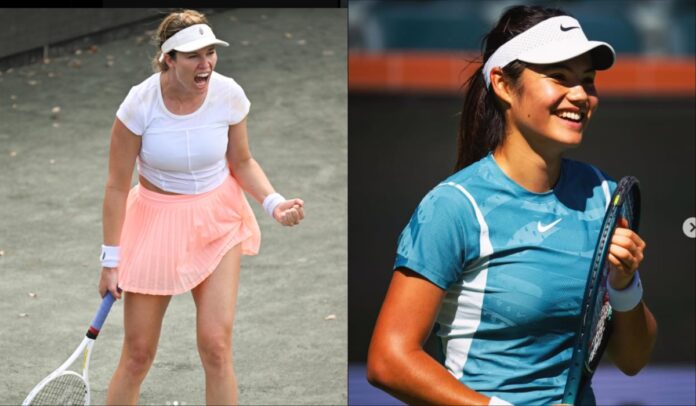In a charged match at the Strasbourg International, American tennis sensation Danielle Collins criticized a cameraman for encroaching too closely on her and competitor, British player Emma Raducanu.
The situation arose during a changeover, a normal pause in play when players usually hydrate and reassess. Collins, clearly uncomfortable with the cameraman’s proximity, confronted the issue directly.
“I have to get water. We’re on a changeover,” she explained to the cameraman. “You don’t need to be that close to me, and you certainly don’t need to be on top of Emma. It’s wildly inappropriate.”
The exchange, caught on broadcast video, became immediately viral on social media and ignited debate regarding player privacy and media limits in professional tennis.
Collins’ words seemed to call for not just her own space but also for her opponent, Raducanu, who was keeping it together for her corner throughout the situation.
While cameras taking close-up shots are a common thing in matches, Collins’ reaction draws attention to an increasing worry among players about how much media interference exists in moments reserved for recovery and contemplation.
Players’ Safety and Comfort Under Spotlight
The WTA and tournament officials have not commented officially on the incident as yet. But the moment has sparked renewed debate around how media coverage is handled on court, particularly changeovers when players are most vulnerable — both mentally and physically.
Commentators and past players have joined in, mostly in favor of Collins’ position. “There’s a distinction between taking a good shot and encroaching into personal space,” one expert pointed out in post-match commentary.
Fans and fellow players have flooded social media with solidarity messages for Danielle Collins, commending her for speaking her mind in the heat of the moment. Most praised her for also respecting Raducanu’s space, reading it as a reflection of respect and professionalism among opponents.
“Danielle Collins just proved setting boundaries is important — even in high-pressure situations,” one X (formerly Twitter) user wrote.
While another user wrote, “Too bad that without that cameraman, she wouldn’t earn the amounts she earns. Congratulations also to the organization for placing that structure in that point.”
With women’s tennis on the rise in international prominence, moments like this shine a light on how that balance of access and respect plays out — and how the players themselves walk that tightrope at the moment.







